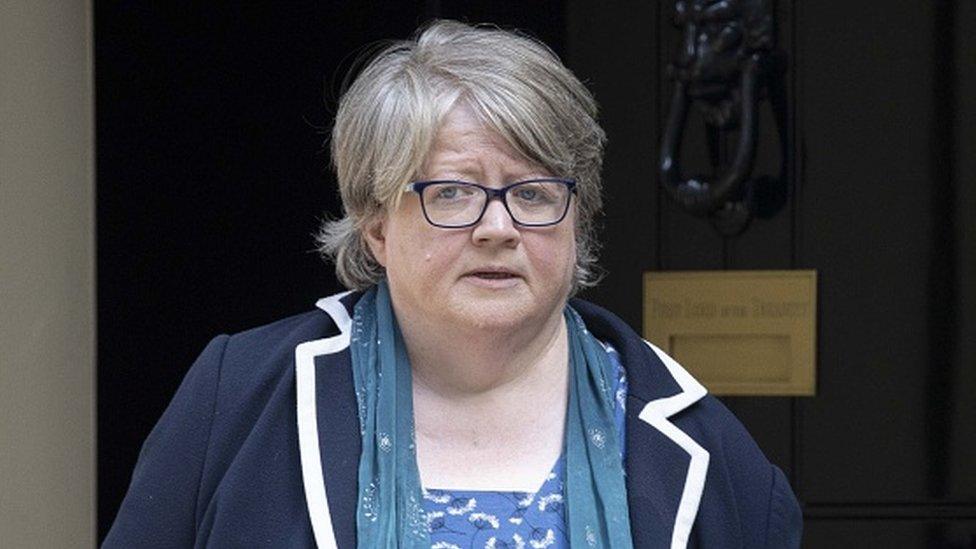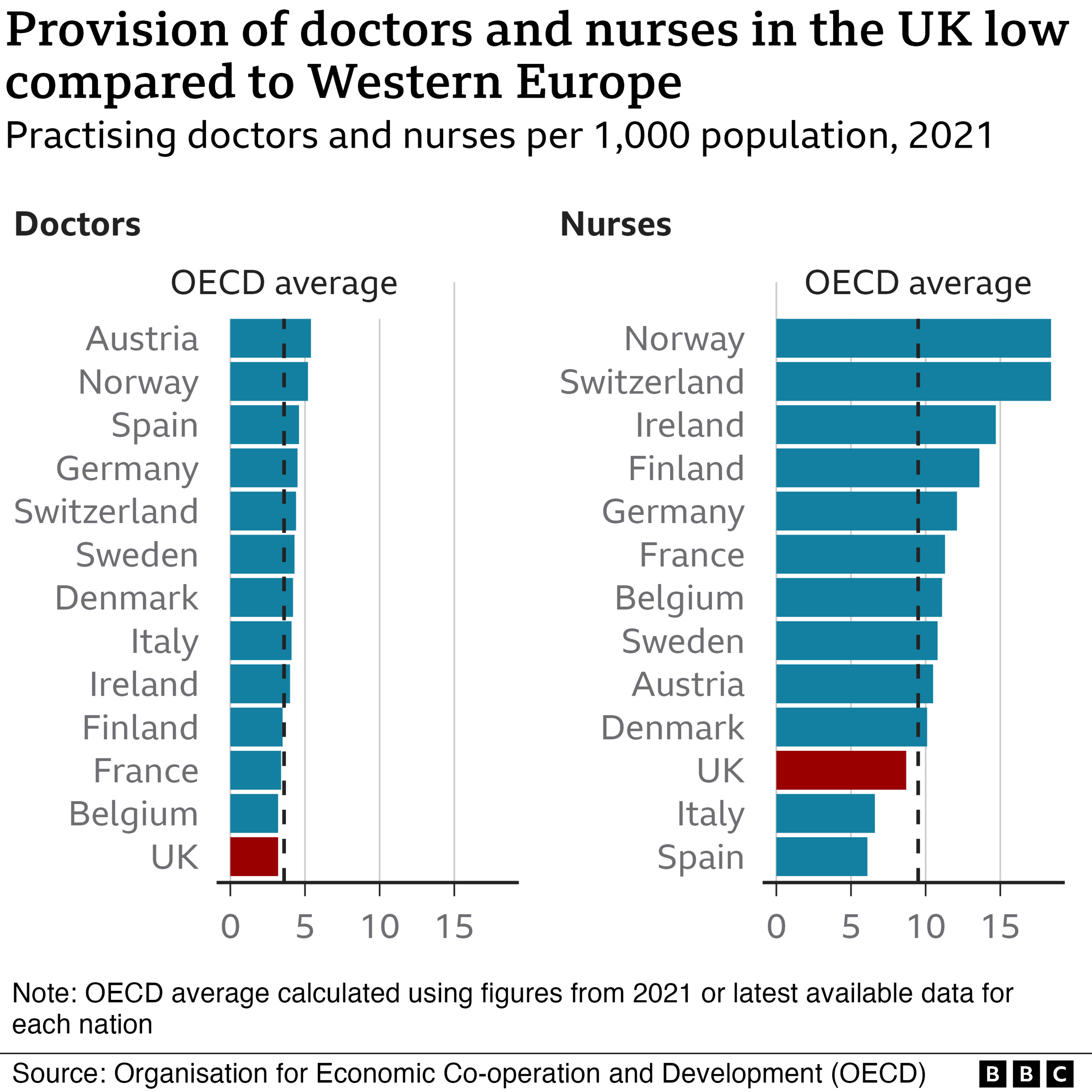Can Therese Coffey deliver her NHS A, B, C and D?
- Published

New Health Secretary Therese Coffey has been quick to spell out her priorities.
They are, she says, the A, B, C and D of the NHS - ambulance, backlogs, care, and doctors and dentists.
It is easy to understand why she highlights these areas - they are critical to the immediate future of both the health service and patients in England (health is devolved so she only has responsibility for this nation).
The delays being seen in responding to 999 calls are, quite simply, putting lives at risk.

The NHS is also struggling to see those needing non-urgent treatment, such as knee and hip operations. There are currently more than 6.7 million people on the waiting list backlog - nearly one in eight of the population.
As a result, care is being compromised. In fact, welcoming Ms Coffey to the role, the NHS Confederation, which represents managers, said the health service was in its "worst state in living memory".
Coffey 'has proven track record'
Those who know Ms Coffey believe she is suited to the role. "She's got attention to detail, a laser-like focus and a proven track record at the Department for Work and Pensions," says a former government adviser who has worked closely with her.
As work and pensions secretary, she oversaw an improvement in the benefits system in terms of efficiency and processing of claims.
She also hit targets to move people off benefits and into work - a push in which she again used the alphabet to signify her intention with:
A for any job first
B for a better job next
C for career off to a flying start
But those challenges are very different from the ones she faces in the health service. Firstly, she benefited from the fact that there were so many jobs available, helping drive down unemployment to its lowest level for nearly 50 years.
And, secondly, improving the efficiency of the benefits payment system is largely transactional. "It's about getting the right processes in place and accountability," the former adviser says.
"The problems in the NHS are much more deep-rooted and therefore not so easy to fix."
That brings us on to the new health secretary's D - doctors and dentists. Or more generally staff.
Overall, nearly one in 10 NHS posts is vacant, with the UK having fewer doctors and nurses per head than many other Western European nations after a decade of budget squeezes.

And for doctors in particular, the situation is - some argue - being made worse by a cap on pension payments which means doctors face large tax bills late on in their careers, encouraging early retirement.
While the cap could simply be removed - as Labour has called for - the wider staffing shortage is more problematic.
It takes five years to train a doctor and three to train a nurse. What's more, the problems in the NHS are directly linked to shortages in another area altogether - social care and the lack of staff there.
There are plans to reform that system, but the new prime minister has pledged to scrap the rise in National Insurance that was going to be used to help pay for that.
The priorities may be simple, but finding the solutions is not.
Follow Nick on Twitter, external
Read more from Nick
Related topics
- Published5 July 2023

- Published5 July 2022

